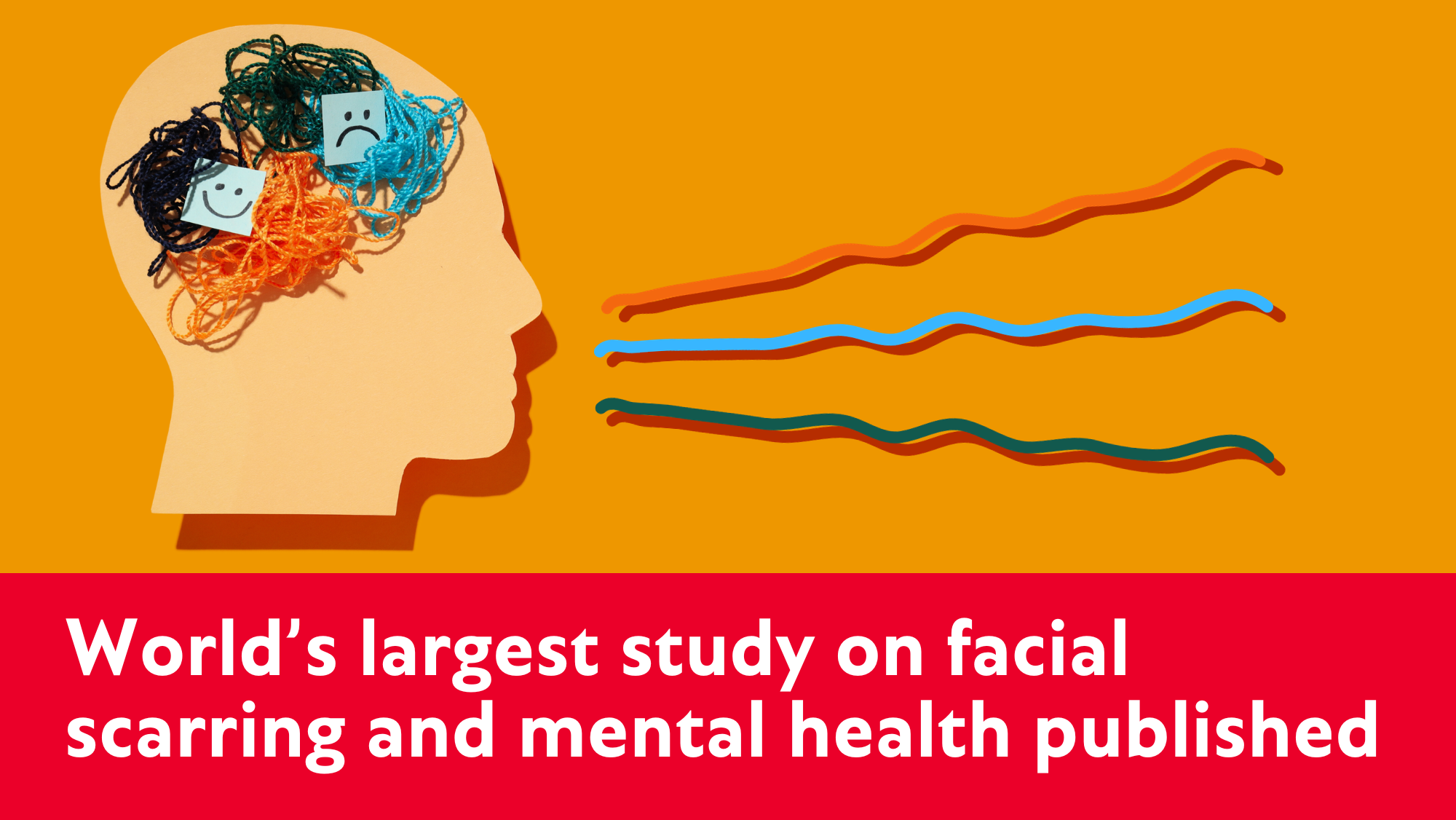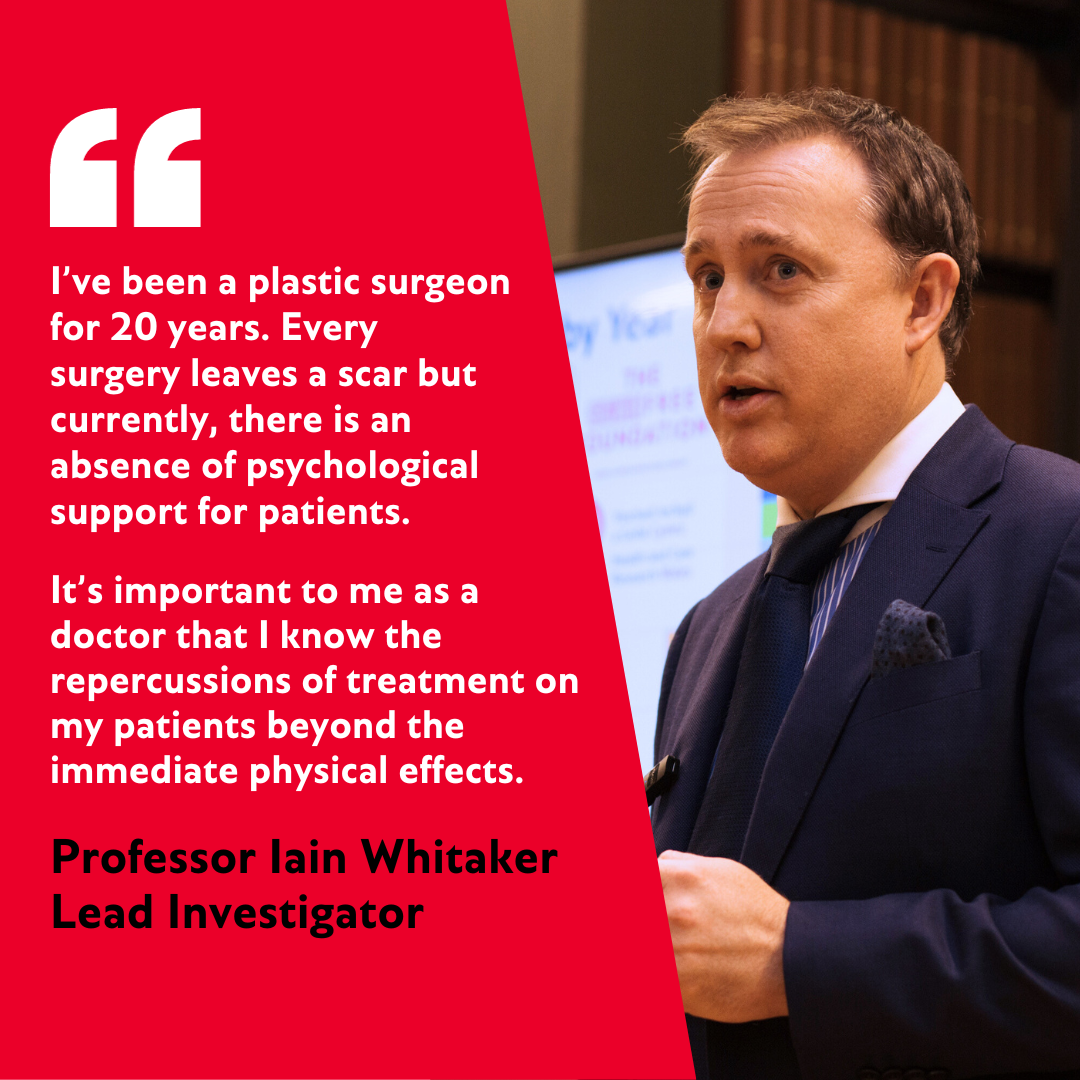Scar Free researchers from Swansea University used health records from over 170,000 people to measure how many people with scars on their face struggle with mental health problems - and what factors make anxiety and depression more or less likely.
The study, “Assessing the burden oF Facial scarring and associated mEntal health Conditions to identify patients at greatesT risk” - known as AFFECT - was funded by The Scar Free Foundation and Health and Care Research Wales. The respected psychiatry journal, BJPsychOpen, accepted the headline research of the AFFECT study for publication in Autumn 2023.
The team, lead by Professor Iain Whitaker used an anonymised databank called SAIL as the basis for their analysis. Using health data from Wales, they found 179,079 people with facial scars. These records were matched by socio-economic status, age of facial scarring, and sex to the same number of people without scars.
The GP records of these matched pairs were compared to figure out how many people with facial scars and without facial scars were treated for anxiety and depression.
They found that people with facial scars are more likely to suffer from anxiety and depression compared to the wider population.
The research showed that there are some key factors that influence how often people with facial scars experience these common mental health issues:
- Anxiety and depression are most prevalent among people whose scars came from self-harm, assault, or traumatic injuries like burns.
- People whose scars came from congenital conditions are the least likely to be treated for anxiety and depression.
- Women, people with a history of poor mental health, and people experiencing deprivation are also at a higher risk.
We are proud to have funded this project alongside H&CRW. Millions of the people in the UK live with scars, but the impact of scarring on our mental health is understudied and often dismissed. This study is one step towards getting people living with facial scarring the support they need to feel happy, healthy, and confident.



